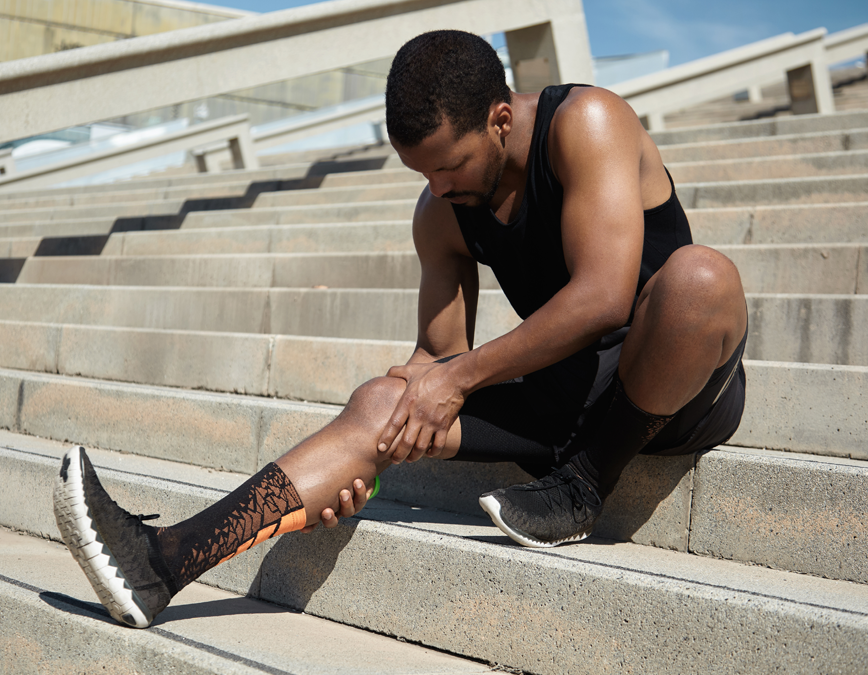Let’s face it. Just about everything is more difficult in the cold and this winter season looks to be as cold as it gets. Cold weather is particularly hard on your skin and the healing of cuts and abrasions that occur this time of year.
Your skin is your body’s largest organ and plays a big role in keeping you healthy. It helps to regulate your body temperature and acts as a barrier to keep body fluids in and bacteria out. The skin also acts as a first-alert system to the world around you by warning of potential problems when you feel heat or pain. This role can be complicated by frigid temperatures.
According to Centers For Disease Control (CDC), nearly 38 million people will come to an emergency room this year. Cuts and contusions (bruises) along with skin infections are among the top five reasons for those visits. Wound healing is a complex process, but when a lesion (wound) is cared for properly – given a clean, covered and moist environment – it can heal on its own with little or no scarring.
As we age, the process gets to be more difficult for our bodies. The older we get, the thinner our skin becomes. Collagen is the main component of what holds our bodies together and the most abundant protein in our body. This protein which gives our skin strength begins to diminish As we age, our bodies’ ability to heal from lesions continues to weaken. Several elements come into play. The skin loses elasticity along with this loss of collagen as people age and both elements are essential in wound healing. Additionally, our immune system naturally becomes weaker with age, which is why the elderly are at a higher risk of infection, according to the National Institutes of Health. Older adults are also at a greater risk of developing age-related chronic conditions that can affect blood flow to the wound site, slowing healing even further.
Patients with ischemic heart disease, peripheral circulatory disorders and cardiac insufficiency are advised to avoid worsening of these diseases by limiting the contact with the cold air and cold atmosphere as much as possible and compliance with minimum preventive measures.
Cold temperatures can cause your arteries to constrict, thereby restricting blood flow and reducing oxygen-rich blood to the heart. This is further compounded by the fact that your heart consumes more oxygen as it works harder to maintain body heat.
Excessive alcohol consumption is detrimental to wound healing. It significantly increases the risk of wound infection by diminishing the body’s resistance to bacteria and other harmful elements. A noteworthy fact from the National Institutes of Health (NIH), is that a majority of emergency room traumas involve a person who is under the influence – avoiding alcohol is not only beneficial to wound healing, but it will likely help you avoid injuries in the first place.
Certain people need to take special care with cuts or scrapes because their injuries don’t heal easily. These include people who:
* Have weakened immune systems (e.g., from chemotherapy medications used to treat cancer)
* Take medications that make the skin dry and fragile (e.g., prednisone)
* Take medications that decrease blood clotting (e.g., warfarin)
* Have diabetes
Dry skin and itching is common in later life. This can result from low outdoor humidity, overheated indoor air, the loss of oil glands with age and anything that has a drying effect on the skin (such as overusing soaps or bathing in hot water). Take care to use moisturizers, eat properly and exercise as you age. You’ll make your skin’s job a lot easier.
Remember, the longer wounds remain open, the longer it takes for them to heal. Our goal for chronic wounds is get them healed within 16 weeks. This requires cooperation between the patient – and their doctors and nurses. It can make a difference in reaching that goal.
St. Mary’s Center for Wound Care and Hyperbaric Medicine is one of only five centers in Missouri accredited by the Undersea and Hyperbaric Medical Society (UHMS). The Wound Center can be reached at call 816-655-5780.


